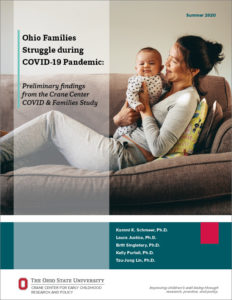A white paper examining the preliminary findings from the Crane Center COVID & Families Study
The ripple effects of the coronavirus pandemic have been far reaching, and go well beyond the health or economic concerns that tend to capture immediate attention. Child-focused researchers and advocates immediately recognized that the virus could pose risks to children and families, in terms of the social isolation, stress, anxiety, and other hardships faced. Recognizing the potential growing crisis for Ohio families and the lack of data surrounding it, leaders from Crane research projects came together to design a rapid-response study of the experiences of families with children during COVID-19.
Keep reading to learn more about the study and its findings, or download the paper in full here.
To better understand what central Ohio parents with young children were experiencing, Crane project researchers Kammi Schmeer, Laura Justice, Britt Singletary, Kelly Purtell, and Tzu-Jung Lin studied 559 caregivers (primarily parents) with young children living mostly in urban areas in central Ohio. They examined risk of exposure to the virus, social and economic experiences, and psychological distress of caregivers during Ohio’s stay-at-home order. They also examined positive experiences had during the crisis.
Their preliminary findings offer valuable information about the social and economic conditions of Ohio families and the psychosocial impacts during the early days of the pandemic. For instance:
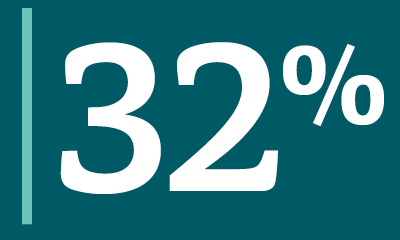
of surveyed caregivers knew someone diagnosed with coronavirus in the early months of the pandemic
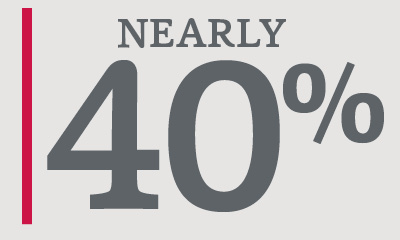
reported their children lost regular contact with family members or friends

reported that they or their children felt stuck at home
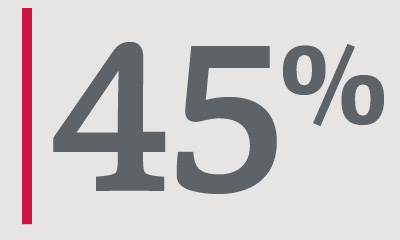
of families reported increased time disciplining their children, while 29% reported increased conflict at home
The economic hardships facing families, as seen in the figure below, perhaps make the emotional and mental stress unsurprising.
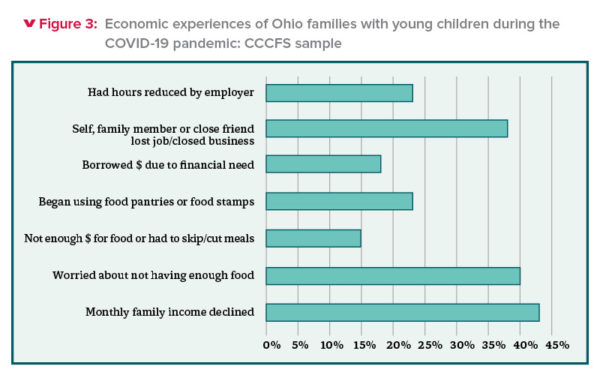
It’s not all bad news. Many families reported increased family time and other positive experiences, though this was likely not enough to compensate for the negative economic and psychosocial stressors.
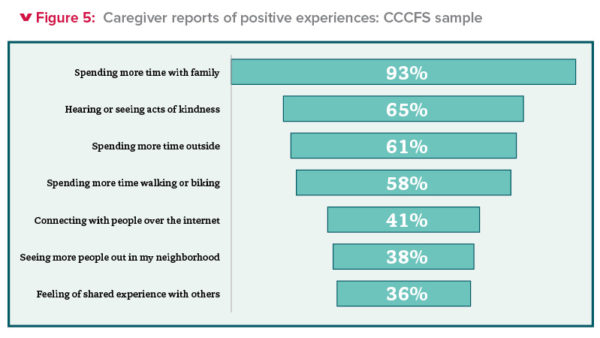
Overall, these findings give us a first look at the experiences of local families with children trying to manage the far-reaching impacts of the pandemic.
Join the conversation!
Use the sample tweets below or find us on Twitter @CraneCenterOSU to share your thoughts on the impact of COVID-19 on Ohio families.
“The pandemic conditions also have the potential for serious risks to young children’s emotional, physical, and cognitive development during this critical stage of the lifespan.” – @CraneCenterOSU paper on the effects of the pandemic on Ohio families: https://bit.ly/COVID-study
Researchers at @CraneCenterOSU designed a rapid-response study of family conditions during the pandemic to provide a glimpse into the lives of parents with young children during Ohio’s stay-at-home order. Read the paper: https://bit.ly/COVID-study
To better understand what central Ohio parents with young children were experiencing during the COVID-19 pandemic, @CraneCenterOSU researchers studied 559 caregivers with young children living mostly in urban areas. See what they found: https://bit.ly/COVID-study
Nearly 40% of respondents to @CraneCenterOSU latest survey of central Ohio caregivers reported that their children had lost regular contact with family members or friends during the pandemic. Read on for more information about the psychosocial impacts: https://bit.ly/COVID-study
Ohio families experienced changes in economic security with the closure of businesses and job losses related to COVID-19. @CraneCenterOSU researchers found that over 40% of caregivers surveyed reported their monthly family income declined since mid-March: https://bit.ly/COVID-study
In @CraneCenterOSU recent white paper, caregivers were asked about symptoms of anxiety and depression given the potential for stress during the pandemic. 52% of caregivers reported experiencing mild to severe anxiety & 38% reported experiencing depression: https://bit.ly/COVID-study


